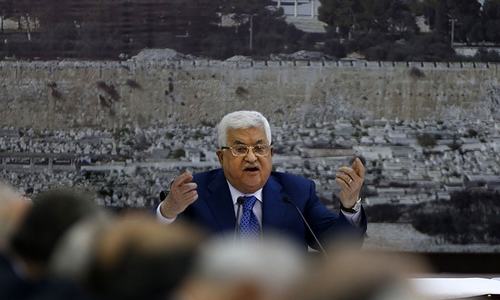IT happens very rarely but many Muslim countries across the world appear to have marked the start of Ramazan on the same day this year. Let’s celebrate what we can. On most other issues and on most other occasions, the world’s 1.5 billion Muslims hardly ever see eye to eye.
It’s a paradox: the talk in Brussels and other European capitals as well as in Washington is often about engaging with the “Muslim world”. How do you do it, who do you speak to, what do you say? And that other question that comes up every time there is a “jihadi” terrorist act. Why don’t Muslims condemn such horrors?
The questions are asked often, sometimes with malice but often with genuine curiosity. Many Western policymakers have bought into the myth of a united “Muslim ummah”, a community of believers stretching across Africa, Middle East and Asia, joined in mind and spirit by their faith.
With its joint efforts on issues like blasphemy, the Organisation of Islamic Conference (OIC) strives to create the impression of a united Muslim front, a group of countries united by religion. Visions of the Haj, with thousands of men and women performing the pilgrimage together reinforces the perception of Muslims “as one”.
The narrative of Muslims belonging to one big block has of course also been peddled rather successfully by the militant Islamic State group as it seeks to attract the world’s disaffected and unhappy wannabe warriors.
The only problem is that there is no unique, distinct, one-size-fits-all Muslim world. Just as there is no unique, distinct, one-size-fits-all Muslim. There are no common values, no shared aspirations, no joint projects.
The so-called Muslim world is deeply divided. Not just along sectarian lines. But also by geopolitical interest, worldviews, governance structures and cultural affinities.
There are dictatorships, monarchies, democracies and countries which lie somewhere in-between. There are countries that respect human rights, others that kill, torture and maim. States with a free press and others who muzzle media freedom. Those where women are in the forefront of change, others where they are supervised by male guardians. And so on.
Religion is much less of a uniting factor than values and interests. It may be heresy to say so, but Pakistanis have much more in common with Indians than they do with Saudis and Qataris. This is simply because neighbourhoods matter. Common history, enduring connections and shared ethnicities trump religion every time. This is true for people living in Muslim majority countries and for Muslims living in the West.
The Western desire to see all Muslims as one, united, similar and homogenous is understandable. It makes it easier to craft foreign policy, draw up “anti-radicalisation” programmes and simple blueprints for communication. Until it becomes clear that these blunt tools just don’t work.
In Muslim countries, meanwhile, the focus on religion as a driver of unity often gives the upper hand to wily politicians, bigots and charlatans.
But times change and slowly but surely, the distinction between Muslim and Muslim is beginning to become clearer and Muslims are being seen as individuals — some of whom may even be secular.
It’s a long process, requiring a change in mindsets and the burying of out-dated clichés. But if there were any Western doubts about Muslim disunity, the uneven reaction of Muslim countries to the plight of the Palestinians — the one cause that once upon a time really united them — has helped make things very clear.
As Israel turned its cruel guns once again on people protesting in Gaza last week, killing at least 59 Palestinians and wounding more than 2,700 during mass protests, the divisions among Muslims were in full display.
The sight of Ivanka Trump smiling her way through at the ceremony marking the opening of the United States embassy in Jerusalem as Palestinian demonstrators were being mowed down by Israeli forces only a few kilometres away was certainly shocking.
Equally shocking was the muted response from Muslim countries. True, there were the usual condemnations of the brutal massacre of Palestinians. But for many Arab states, the focus now is much more on countering Iranian influence in the region than on backing the Palestinians.
Switching focus and espousing new priorities is to be expected in a volatile and unpredictable world. Governments must keep pace with and adapt to shifting geopolitical sands.
But as we condemn the United States, Israel and their friends for turning their back on the Palestinian people, let’s also denounce cold, cold Muslim hearts.
The writer is Dawn’s correspondent in Brussels
Published in Dawn, May 19th, 2018














































